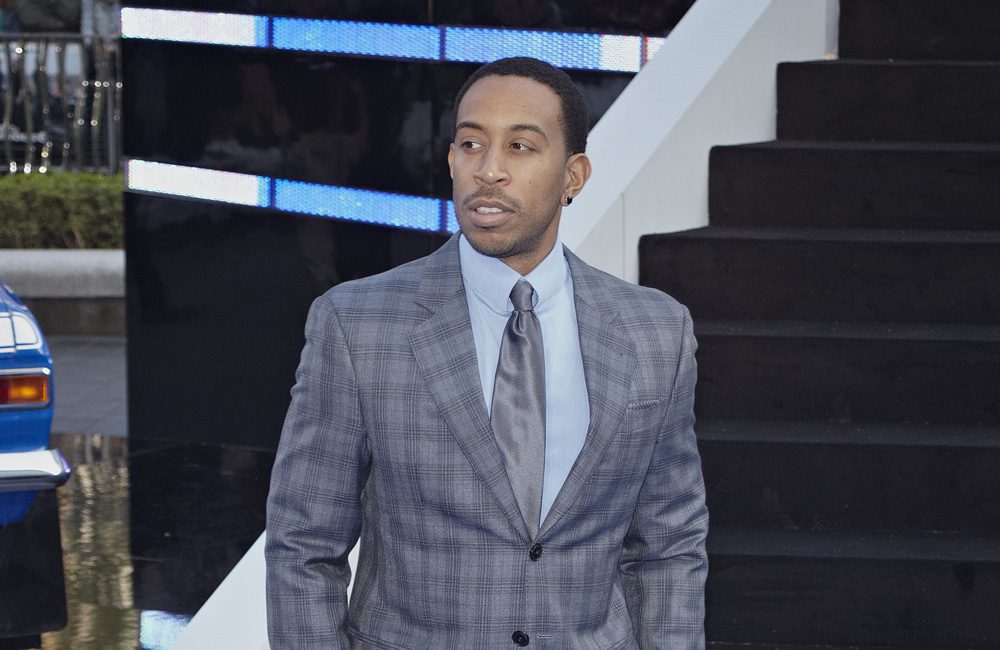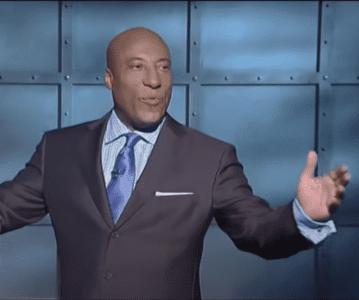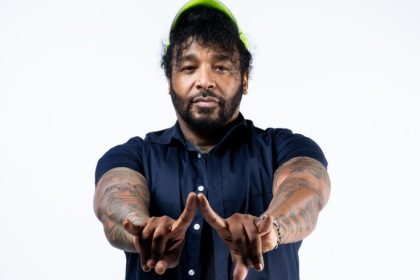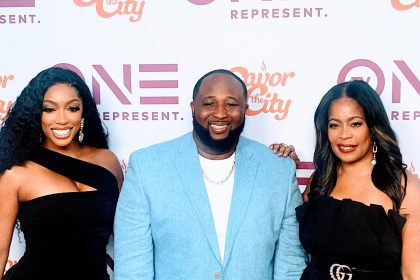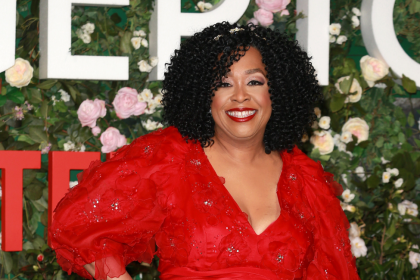
Music mogul and manager Chaka Zulu has built an enviable career over the past 20 years. Not only has he managed the international artist Ludacris, but he’s now added executive producer title to his repertoire. Along with his brother, Jeff Dixon, whose pedigree extends to many years of managing Heavy D and the Boyz and a slew of other successful artists, the dynamic duo teamed up to executive produce BET’s hit docu-series “Inside the Label,” educating many about the music business.
How did the concept of “Inside the Label” come about?
Chaka Zulu: It’s really a funny thing because, with us having a record label with a studio full of artists, it came about with us having a hip-hop debate and talking to our younger artists; realizing a lot of them didn’t know much about the industry and the legacy of how we got here today. So, one day Jeff said we need to do a show. People at the time were thinking they were hotter than they really were and not really recognizing the ones that came before them. The concept was to put it in a show format that showed all of us starting from nothing and putting together something. If you notice, a lot of the labels started from nothing and became a pop culture phenomenon. We wanted to create those similarities in the industry and stand up and show how the hip-hop business has really been fruitful and still is.
Jeff Dixon: Also, to piggyback off that, we wanted to show how hard it was and the hard work that went behind it. That’s why “Inside the Label,” shows what it takes to succeed. We all have vision, but they have to understand what it takes to really start a label. There’s a false perception, because everyone wants to be Diddy or these big moguls but [they don’t] understand how they got to that point, or [how they got] the knowledge. People think it’s just a starter kit. I want people to learn from the mistakes that we made. That’s why “Inside the Label” talks about the success and the failures of the industry as well. We want them to have a blueprint.
What do you think is the No. 1 reason labels are unsuccessful?
JD: I don’t think labels are unsuccessful, everything happens for a reason. I just think the way things grow and expand plays a part. As a business grows sometimes people branch out and do their own thing. But, artists know where they came from and the root of their success.
CZ: A lot of labels have missed or don’t understand the growth in what we’re selling or really doing in the music industry. People come and not realize that there is a cultural movement; there was actual music being made. If we don’t grow in space to continue to redefine our existence and continue making hit records we over leverage culture and not music. At the end of the day, the music business is driven by music. I think thats where some labels are loosing because they came in a different space. When it’s time to grow we’re not flexible enough to grow at a pace where we feel confident and comfortable enough not to slow people down.
JD: G-Unit did it the best to me. They came in and never took a spot. You had 50 Cent, Lloyd Banks; a lot of them came in one after the other. They had a lot of success at the time together. What I think is some labels have short attention spans, they only want the artist that would give them the best return on their assets. At the end of the day it’s a business, and moves like that can start labels and artists colliding.
Chaka, you and Ludacris have such an unbreakable bond. What made you all so connected?
I think it was the openness and the excitement about the opportunity to be in the industry. I think at that point is where we started interacting with each other; I immediately respected his talent and he immediately started respecting my knowledge. We felt it was a mutual benefit in working with each other. The weird part was I never wanted to be a manager, so when Ludacris asked me I just said ‘Yes’! But, I always wanted to be more of an executive or the A&R type. It was one of those things where God just has to see you through.
What was the hardest trial you had to face when working with Disturbing Tha Peace artists?
JD: It’s like having a lot of kids, and making sure every kid has what they need. That’s the thing about running a label, managing is nothing but a huge babysitting job! First, of all it’s competitive, even though everyone’s on the same label, everyone is fighting for that number one spot. People think that they’re better than each other. Chaka was more of the creator and inspired the team, while I mainly took care of the artists’ needs and wants. Chaka was like our P. Diddy!
CZ: It’s hard to tell your artists, “this song isn’t the right song.” Placing those expectations, when artists think you don’t believe in them. Those were some difficult moments. But, it’s what we signed up for, so we don’t mind doing the grunt work and having those hard conversations. We had some wins together and then we had some failures.
Has everyone made peace with those who left the label?
CZ: No.
JD: Nope! We’re family at the end of the day, whether we’re together or not, so we still wish them well.
What advice would you give a startup label?
CZ: Really learn the business get some mentorship. We’ve been doing this for 20 plus years and we still call our mentors and create new mentors. Really pay attention to the business and know how to clean those pipes to make sure things don’t get soiled.
JD: You have to be willing to sacrifice. Something is going to suffer, whether it’s your personal life, relationship, whatever it is you have to make time and sacrifice or things will suffer. You have to know the music business.
What frame of mind did you have to get in to produce a series like this?
CZ: I wanted to make sure we protected the legacy and left a legacy. Because, we asked a lot of our friends to do this show about what their legacy is and to make sure that we protect that. It isn’t just about the artists, it’s also about the D’jays that broke the record. It’s about the program directors that supported the record, it’s all of that. We get the story out and cover all of our basis; without creating more problems for their businesses and their legacies. It was a lot history made, but there was also a lot of pain. We wanted to give a voice to everybody. It’s about the whole totality to what it takes to make superstars and a successful business.
Make sure you check out “Inside the Label” on BET or visit https://www.bet.com/shows/inside-the-label.html.



